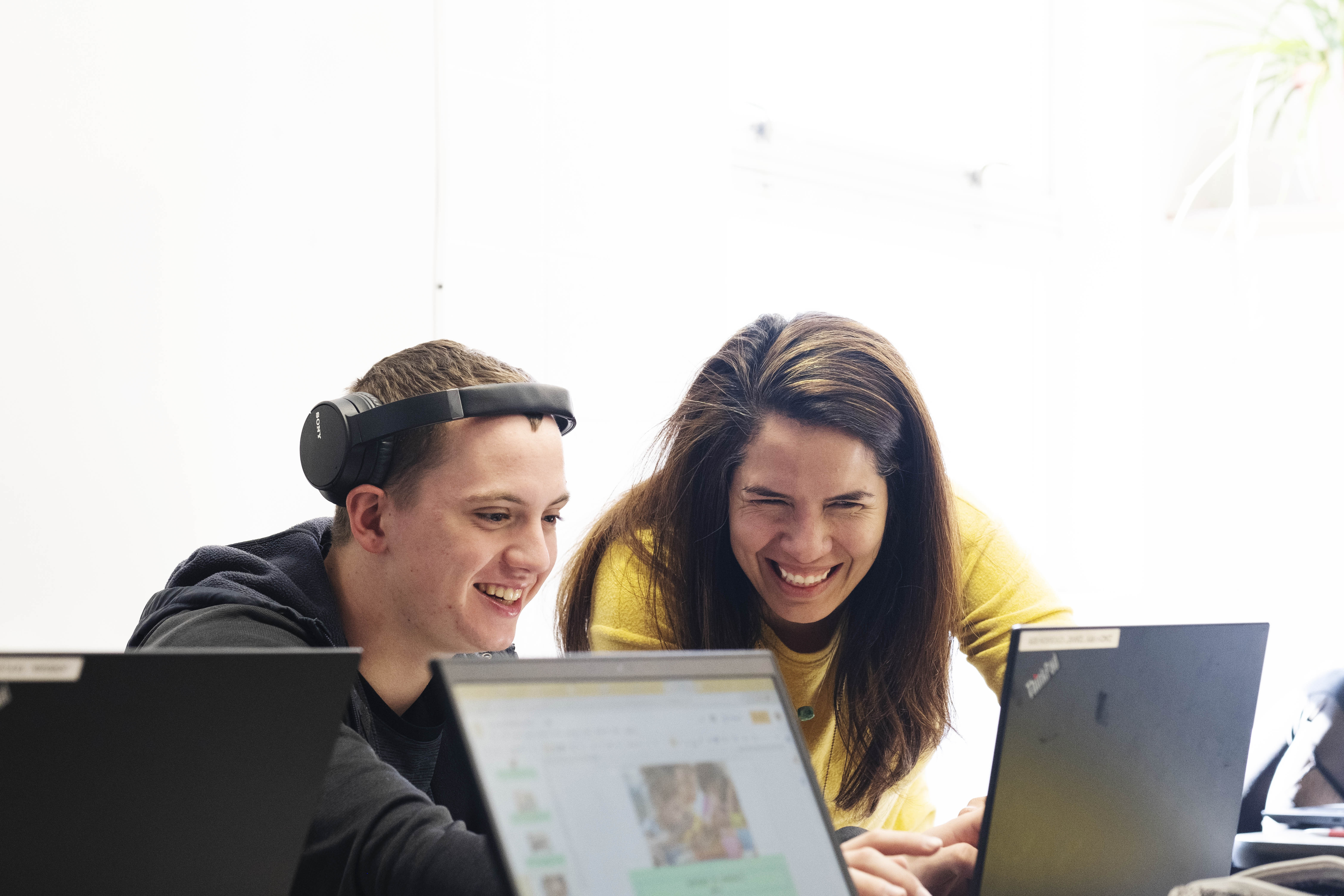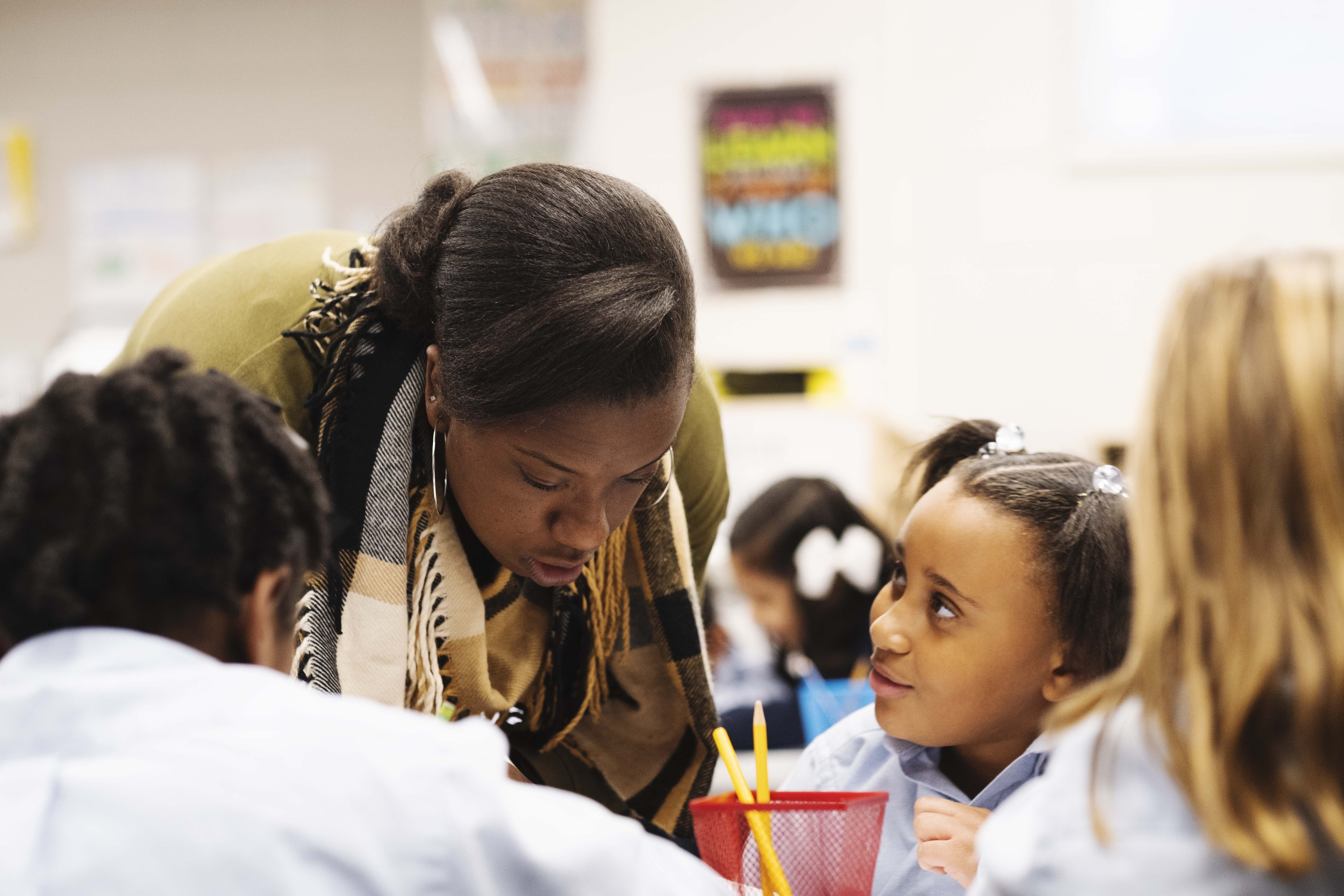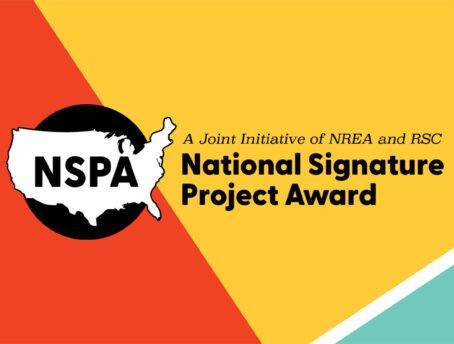Over the past year, the Rural Schools Collaborative had the pleasure of sharing the stories of teachers across the country through the I Am a Rural Teacher Campaign. The response has been incredible. We’ve heard from over 150 teachers across the country, shared four in-depth photo-essays, and launched the I Am A Rural Teacher Podcast. This week, we’d like to take some time to reflect on this work and ask, what connects rural teachers?
My name is Julia Levine, and I’ve been the Communications and Narrative Coordinator for RSC for the past year. Before the Covid-19 pandemic, I had the chance to travel to four small towns across the country. During these travels, I was able to get a look into the rural classroom, taste the best local food, and (always) attend a local basketball game. After the pandemic, we started our podcast series, where I continued to get a look into rural teachers’ lives, unfortunately without the students, food, or basketball.
Throughout this process, I’ve been so inspired by the dedication that rural teachers have not only to their students, but in advocating for their entire community. And it seems to me that for rural teachers, school and community are not separate at all, but rather all part of the job. To illustrate this, I’m turning to the teachers we featured to share how community and classroom connect.

Inter-generational Spaces
To start, there are many natural ways that community members integrate into daily life at a rural school. Johnathan Imhoff, a music teacher in Weaverville, California, described this atmosphere in his rural town:
“You have these fun inter-generational opportunities between students and members of the community, and they can support each other. We have community members come through. They’ll come in and sit in the pep bands. That sort of opportunity happens all the time, whereas in cities there are a billion things community members may be distracted by,” says Johnathan.
When I traveled to these rural schools, I too was often struck by just how inter-generational the community was. At basketball games, grandparents mingled with students, parents, and teachers. Unlike the divided spaces I was used to in the city, here the high-schoolers, college students, young parents, and retirees seemed to often spend time together.
One potential reason is that rural areas often lack many public common spaces. Instead, schools act as a hub for many in the community, a place for everyone to gather and connect. That said, it’s never just that there’s “nowhere else to go," it’s also that rural communities are oriented around supporting their young people.
Teachers hold a special role in these networks of support for young students. In Northern Alaska where Patti and Rod Lloyd are elementary school teachers, they consider it a great honor to teach, as kids are seen as the most important part of the 200-person community.
In Whitesburg, Kentucky, law and history teacher Michael Melton agrees, sharing his experience as a bus driver and high school teacher.
“[Parents] allow the most precious thing they've got, that they'll ever have, on many mornings to get on a bus with me. A five-year-old, a six year old. They turn their responsibility over to me to keep that child safe and make sure they're supposed to get where they're supposed to be and that they get an education. How could that not be love? How could you not take that seriously every day and be thankful that you're given that opportunity?” asks Michael.

In exchange, families are a huge part of the rural classroom. For Joaly Ray, a Spanish teacher in Forsyth, Missouri, being a rural teacher is like having one big family.
“My former students bring me their babies. You get to know everyone. There’s four siblings, you have them all. You go to their weddings, meet their kids, they are excited to come tell you their accomplishments,” says Joaly.
Jolene Smith, who teaches on the Navajo Nation reservation, is even more connected as she recognizes the history that her students bring with them to the classroom through their Navajo family clans.
“We really get to know the family, where they're from because of the Clan and what situation they are in. And I think the teachers are very understandable with how students live at home,” explains Jolene.
Just as family comes into the classroom, it is imperative that rural teachers make an effort to become part of their community. For Mark Roy, an eight grade science teacher from Fort Washakie on the Wind River Reservation in Wyoming, this investment is particularly important as a white teacher coming into a Native American reservation.
"People on the reservation talk about living in two worlds and that's their life. They are of a minority culture living in a dominant cultural world and they can't escape that dominant culture. It's all around them. And they have to be able to operate smoothly, transitioning back and forth all the time. And I understand my students better every time I make that transition. If I were to just treat this as a job, I wouldn't have that,” says Mark.
Teachers Shaping the Future
As illustrated by their close-knit relationships with families and other community members, it’s evident that rural teachers are more than just teachers. Rather, they are leaders in their community and advocates for the future of that community. Sharon Christie of Douglas, Arizona beautifully demonstrates this by saying, "people see it as a dying town. I see it as a town with a lot of potential.”
Not only do rural teachers raise “future leaders”, they play an integral role in shaping the future of the towns that they teach in, by helping students see the value of the place that they come from.
Haley Richardson teaches at a newly racially integrated elementary school in Livingston, Alabama, and describes the importance of embracing your place as a rural teacher.
“Being able to embrace where you live and where you come from is important. Just for your students and the community to understand that ‘Hey, this is our place. Let’s love and embrace our place and the history behind it,” relates Haley.
“It’s about looking at what you have,” Haley says, “and making what you need.”

The teachers that I met emphasized the connection between valuing place and valuing people. Michael Melton makes this connection while talking about the impact of an oral history project on his students:
“I think getting the students involved in their community, talking to their own family members, other grandparents, and other family members that have a perspective from a time before theirs is invaluable to their connection to the place that they live in and the pride that they have for the place that they live in. And if they have pride from where they live, they're most likely going to have pride in themselves and that's going to exponentially increase our possible success in the future.”
This connection between pride in place and pride in self is something I saw time and again in rural communities. And it’s part of the reason that place-based education seems like such a natural fit for rural areas. For many rural teachers, place-based education means people-based education.
And when the well-being of students is so intimately connected to the well-being of their town, it becomes very powerful for teachers to stay in their community. It sends the message to students that “I value this community and therefore I value you.”
In Alaska, Patti and Rod Lloyd have seen many teachers come and go, “parachuting” into the community for a year or two without ever fully getting involved.
"The kids really get apathetic towards people they see every year because they come in and they're always enthusiastic. They want to do this, they want to go there. And the kids have all seen that. 'Yeah. You say this now, but you won't be here next year,’” relays Rod.

It’s all about being with the community, through good and bad. Mark Roy on the Fort Washakie Reservation illustrates the level of deep connection needed:
"There are teachers who are more integrated and teachers who are less integrated in terms of being active in the community. The community has always welcomed me in and I feel welcomed and embraced when I go to powwows or to events on the reservation. And there are teachers who carry that same kind of perspective of the reservation as being a violent, scary place to the school with them. And so when they're done working, they get in their car and they go home and they don't come back to work. And most of those teachers are not here very long.”
Through their dedication to their communities, rural teachers hold the hope for the future. For Melissa Wyman, an English teacher in Hartford, Vermont, this comes down to value:
“In rural communities, sometimes helping people see the value in their community means they have to see the value in themselves. And that’s a lot of personal work. But, I think it's important work. And I think we can do it. If the schools are willing to partner with the community and the communities will partner with the school, it can help create healthy communities.”
And often, when we look to the students, they are already leading the way to healthy communities.
Kylee Payne, who taught in Monmouth, IL says she’s constantly inspired by her students. She advocates that “we really need to listen to the kids, with what they notice… A lot of times kids grow up and believe that they aren’t in control of their lives and they don’t have much say, but I want them to feel like they have control. I’m preparing my kids for a future that they are in control of.”
Photos and story by Julia Levine.
This story is part of the “I Am a Rural Teacher” national advocacy campaign. We’d like to thank our partners at the National Rural Education Association, Community Foundation of the Ozarks, Ozarks Teacher Corps, and The University of West Alabama’s Black Belt Teacher Corps. The “I Am a Rural Teacher” campaign is made possible by a grant from The Bill & Melinda Gates Foundation.




